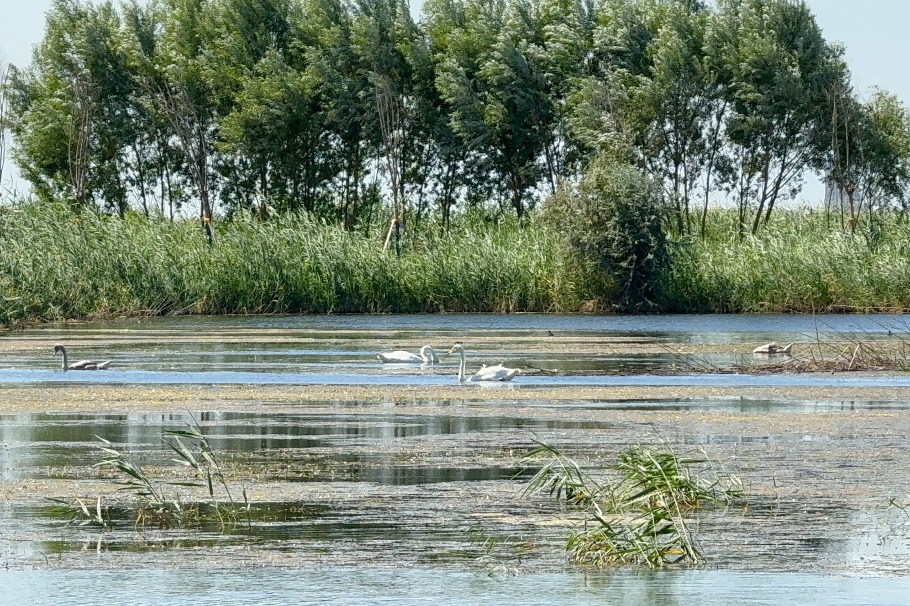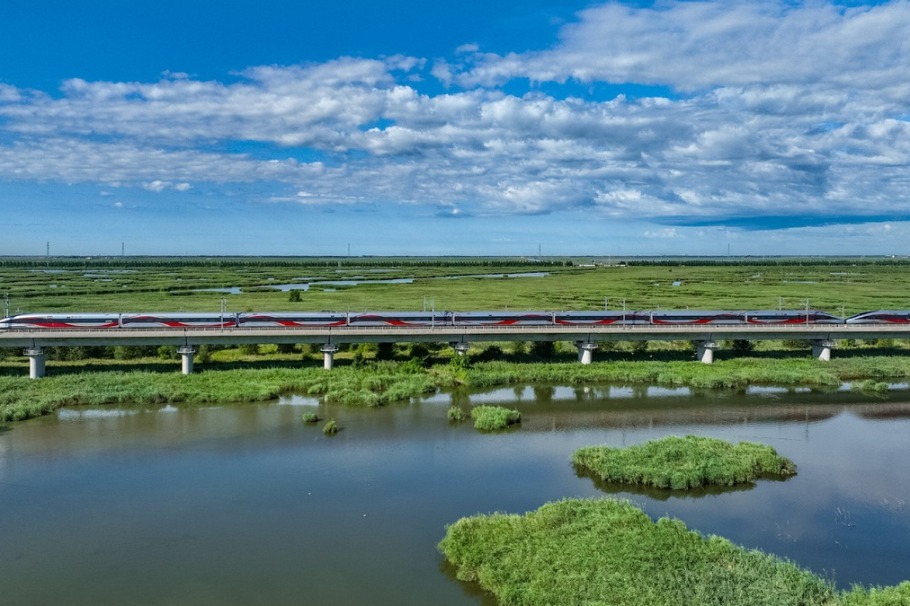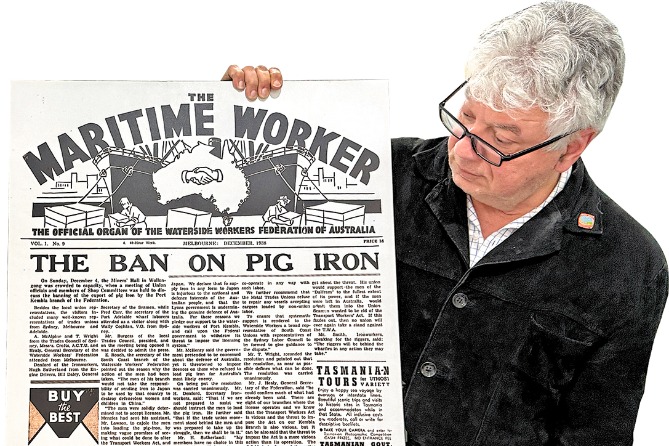Pleas for peace in Gaza grow louder
Civilians' lives at stake as calls intensify for cease-fire, delivery of humanitarian aid

More than two months into the violent conflict in Gaza, Abdullah Waleed and his family members had a close brush with death in the early hours of the morning.
An Israeli airstrike at 3 am instantly leveled his neighbor's house and damaged his own home, leaving 24 people, mostly women and children, dead.
"It was a terrifying moment for our family, especially our kids. There is no place safe in Gaza," said the senior fellow and Palestine coordinator at Asia Middle East Center for Research and Dialogue currently based in Rafah, south of Gaza.
Waleed, a father of two boys, communicated intermittently via mobile phone messaging service channels. He said internet connection was bad because much of the infrastructure had been damaged by the Israelis.
"Our neighborhood was among the 'safe zones' announced by (Israel Defense Forces) where they've asked people to (flee). Yet, they keep on attacking civilians in our neighborhood," Waleed said.
He and his family are now among the 1.9 million — out of Gaza's 2.3 million population — who have been internally displaced since fighting broke out between Hamas and Israeli forces on Oct 7.
The surprise attack on Israel by Hamas militants on that day left 1,200 dead, while 240 people were taken as hostages.
In retaliation, Israel became determined to wipe out Hamas, with Prime Minister Benjamin Netanyahu vowing that his country would fight "until victory" as the Palestinian death toll reached 20,674 as of Tuesday, according to the Ministry of Health in Gaza.
Whether Waleed would live to see another day depends very much on the world coming together to pressure Israel and Hamas to agree to a sustainable cease-fire deal.
The UN Security Council on Friday passed a key resolution, emphasizing the immediate acceleration of aid deliveries to the distressed civilians in Gaza, but without the original call for an "urgent suspension of hostilities" between Israel and Hamas. Israel and the US oppose a cease-fire because they believe it would only benefit Hamas.
On Monday, Israel and Hamas gave cool public receptions to an Egyptian proposal to end the conflict. But they stopped short of rejecting the plan altogether, raising the possibility of a new round of diplomacy to halt the Israeli offensive in the Gaza Strip.
The Egyptian plan calls for a phased hostage release and the formation of a Palestinian government of experts to administer the Gaza Strip and occupied West Bank, according to a senior Egyptian official.
Netanyahu did not comment directly on the proposal. But speaking to members of his Likud Party, he said he was determined to press ahead with Israel's offensive.
"The situation is so complicated and sad to the point that we who live here can't describe it. The aid that enters Gaza is so minimal and not sufficient at all. It's a drop in the ocean. Most people and places in Gaza Strip don't receive any of this aid at all, mainly due to the Israeli ground invasion and attacks," Waleed said.
"Winter is making life much more complicated. It's the cold season here in Gaza with heavy rain and wind. People, mainly those who live in tents, are suffering a lot. Most people can't afford to buy anything due to the collapse in the economy," he said.
Crucial medical care
Lujain Alqodmani, president of the World Medical Association, said that the group "stands in solidarity with all the physicians and healthcare personnel who are on the front line", risking their lives to provide crucial medical care "during these challenging times", and called for international humanitarian laws to be respected.
"We remain committed to our mission of advocating for the ethical practice of medicine and promoting peace and respect for humanitarian principles. We urgently call for safe provision of medical and health equipment and humanitarian supplies for all people in Gaza," Alqodmani said.
"Civilians, healthcare facilities, personnel and vehicles are never a target. All people in Gaza have the right to safely access healthcare as all people everywhere even during war. This is their fundamental human right that should always be protected and never compromised."
Meanwhile, with the UN Office for the Coordination of Humanitarian Affairs reporting that telecommunications and internet services had been cut off in Gaza, the International Telecommunication Union has called for the protection of telecommunications infrastructure and "the essential right to communicate".
"Digital connectivity is essential to social and economic development. Connectivity is also critical for people to make distress calls and reach emergency health services. ITU has called for the protection of telecommunications infrastructure and the essential right to communicate," it said.
Both Israel and Hamas have been accused of committing war crimes in the latest conflict. According to the Rome Statute of the International Criminal Court, the definition of a war crime includes wilful killing, torture, inhuman treatment, extensive destruction and appropriation of property not justified by military necessity and carried out unlawfully and wantonly, and taking of hostages.
Abdalfatah Asqool, an international law lecturer at the University of Palestine in the Gaza Strip, said that under international humanitarian law, there "are many principles to govern any conflict" that may break out between any parties.
One tenet under the law is the proportionality principle, which means there must be (proportionality) between civilian damage and the military benefits from any attacks or military operations, Asqool said.
Israelis and Palestinians have been locked in a territory dispute for decades, and their conflict continues to be one of the most contentious issues in the Middle East.
Jasim Husain, a Gulf analyst and former member of Bahrain's Parliament, said that not much attention was being put into finding a comprehensive political solution to the crisis.
"Any solution must be based on the two-states notion," Husain said.
The 22-member Arab League, which also includes six countries that make up the Gulf Cooperation Council, has repeatedly condemned the Gaza assault but its member states differ in response when dealing with Israel.
"Leading Arab and Gulf countries are focusing on a permanent cease-fire, ensuring steady entry of aid to Gaza due to the humanitarian situation and needs," Husain said. He added that the Arab and Gulf countries "have different priorities" and their own agendas with regard to socioeconomic and sociopolitical matters.
Hussein Maklad, a professor of international relations at Damascus University, said that the current situation also reflects how the US government is "in crisis".
The US has fought "against innocent people in Gaza" by providing Israel with weapons when the US Congress appropriated $14.3 billion in assistance to Israel.
In the wake of the Hamas attack on Oct 7, US President Joe Biden declared support for Israel, ramping up US military support by deploying the USS Gerald R. Ford aircraft carrier and another warship in the Mediterranean Sea.
The US recently announced the creation of "Operation Prosperity Guardian", a naval protection force in the Red Sea following attacks from Yemen's Houthi militia on merchant shipping.
Washington's desire
Maklad said this showed Washington's desire for the conflict to continue and make the Gaza Strip uninhabitable and "committing more massacres and ethnic cleansing".
" (Israeli) practices in the Gaza Strip not only affect the Palestinians. They affect global peace. So providing Israel with the military supplies would also affect global peace," said Asqool, the law expert.
A growing number of Western or US-allied countries, which had earlier supported Israel's right to self-defense, are now joining the calls for a humanitarian cease-fire, building up pressure on the US and its support for Israel.
China's permanent representative to the United Nations, Zhang Jun, said in a UNSC meeting that only a cease-fire could prevent greater civilian casualties, including those of the hostages, and prevent a regional conflict from spiraling out of control.
He also urged for a constructive approach to the Gaza crisis as the UNSC hammered out a resolution. As for the West Bank, he said the council "must play its part and uphold fairness and justice as violence and restrictions continue there".
China in October announced that it was providing $2.05 million in emergency humanitarian assistance to Gaza.
On Dec 3, Diab al-Louh, the ambassador of Palestine to Egypt, extended his country's sincere gratitude to the Chinese government and people for providing timely humanitarian aid supplies to the Gaza Strip.
Chinese President Xi Jinping stated China's principled position on the current Palestinian-Israeli situation on a number of occasions. He stressed the need for an immediate cease-fire and end to the fighting, ensuring that humanitarian corridors are safe and unimpeded, and preventing the expansion of the conflict. He pointed out that the fundamental way out of the conflict is the two-state solution, building international consensus for peace, and working toward a comprehensive, just and lasting settlement of the Palestinian question at an early date, according to the position paper on resolving the Palestinian-Israeli issue released by China's Foreign Ministry on Nov 30.
Husain, from Bahrain, called China's consistent position on the Palestinian-Israeli issue "very principled" as it "seeks a permanent and lasting solution" to the Israel-Palestine crisis.
Maklad from Syria said China "now is a great power" and that all "would want to see a big role for China in the international system".
China achieved a major success when it played a broker role between Saudi Arabia and Iran. It is focusing on the implementation of the two-state solution, Maklad said.
"China is more acceptable (to) the Arab people in playing a broker's role or mediator in the settlement of the Palestinian cause," he said.
Agencies contributed to this story.
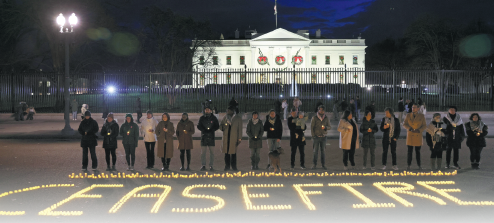
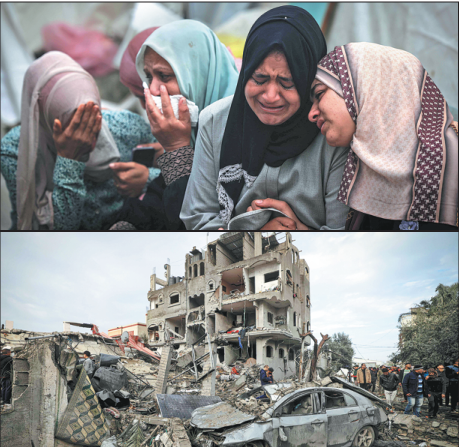
Today's Top News
- China supports Ukraine peace talks between all parties
- China to hold press conference on military parade preparations
- Vast gap has to be bridged for peace to arrive in Europe
- AI powering China's industrial evolution
- Tech innovation propels nation's industrial future
- Chengdu World Games concludes amid wide acclaim
















